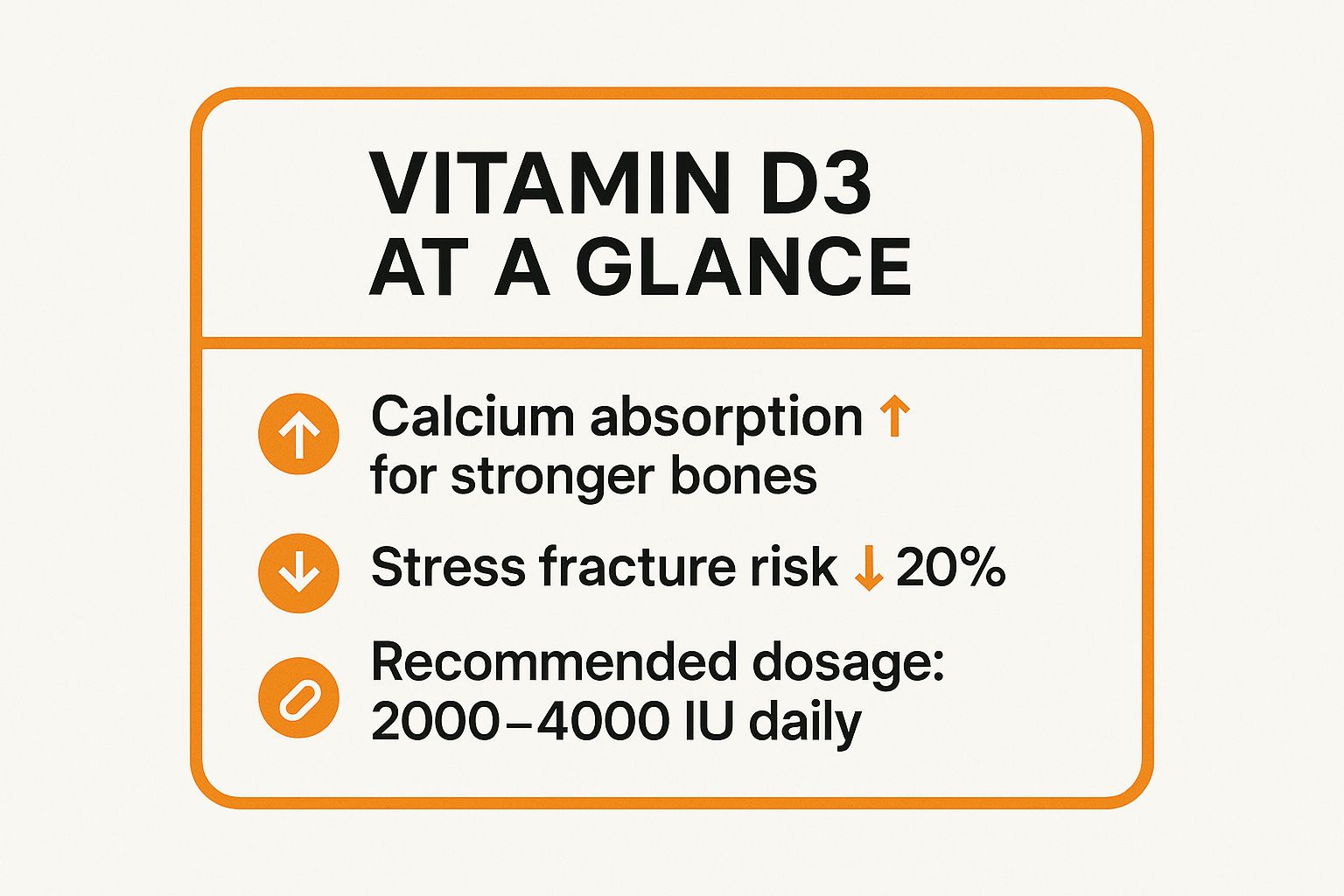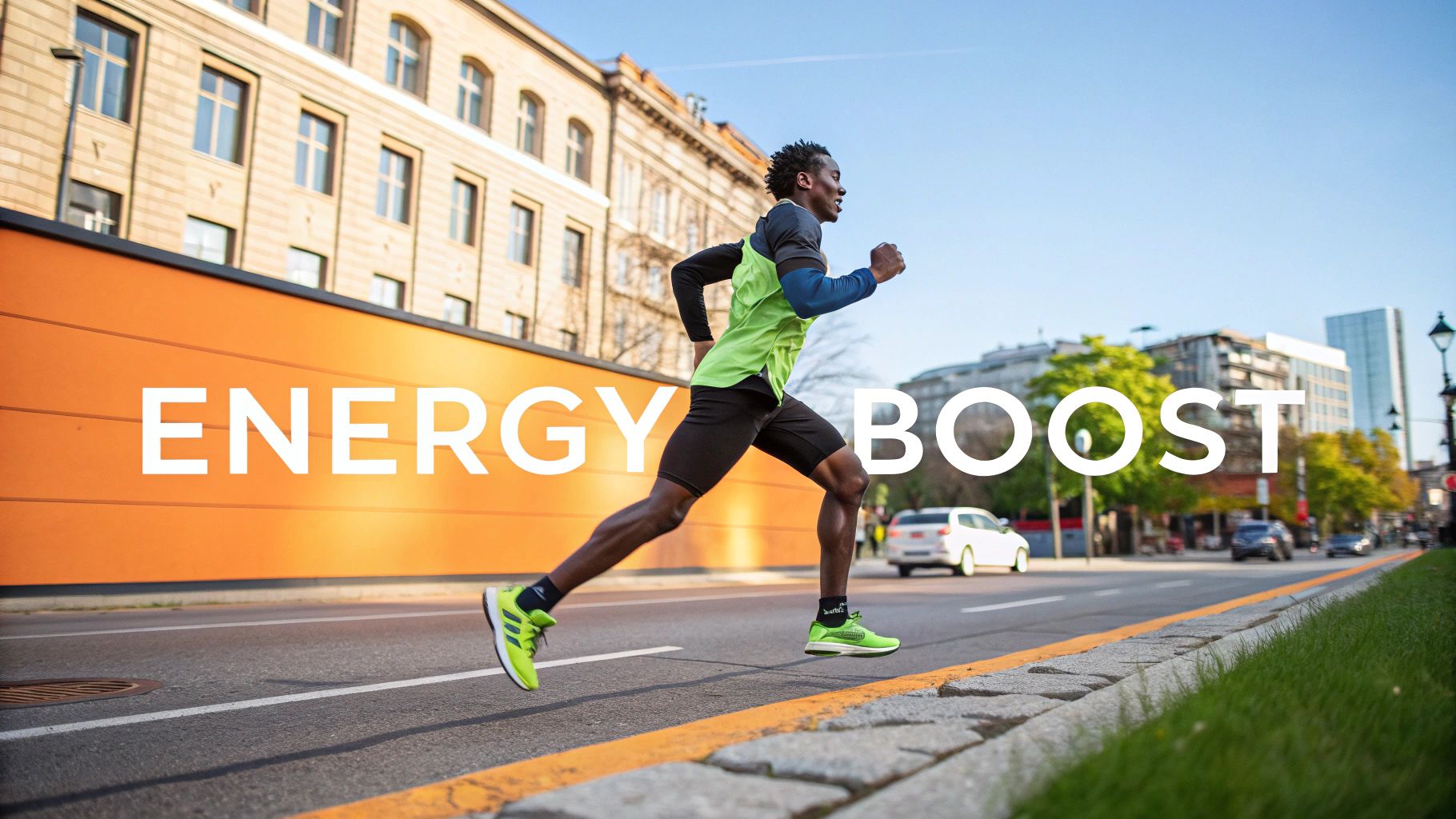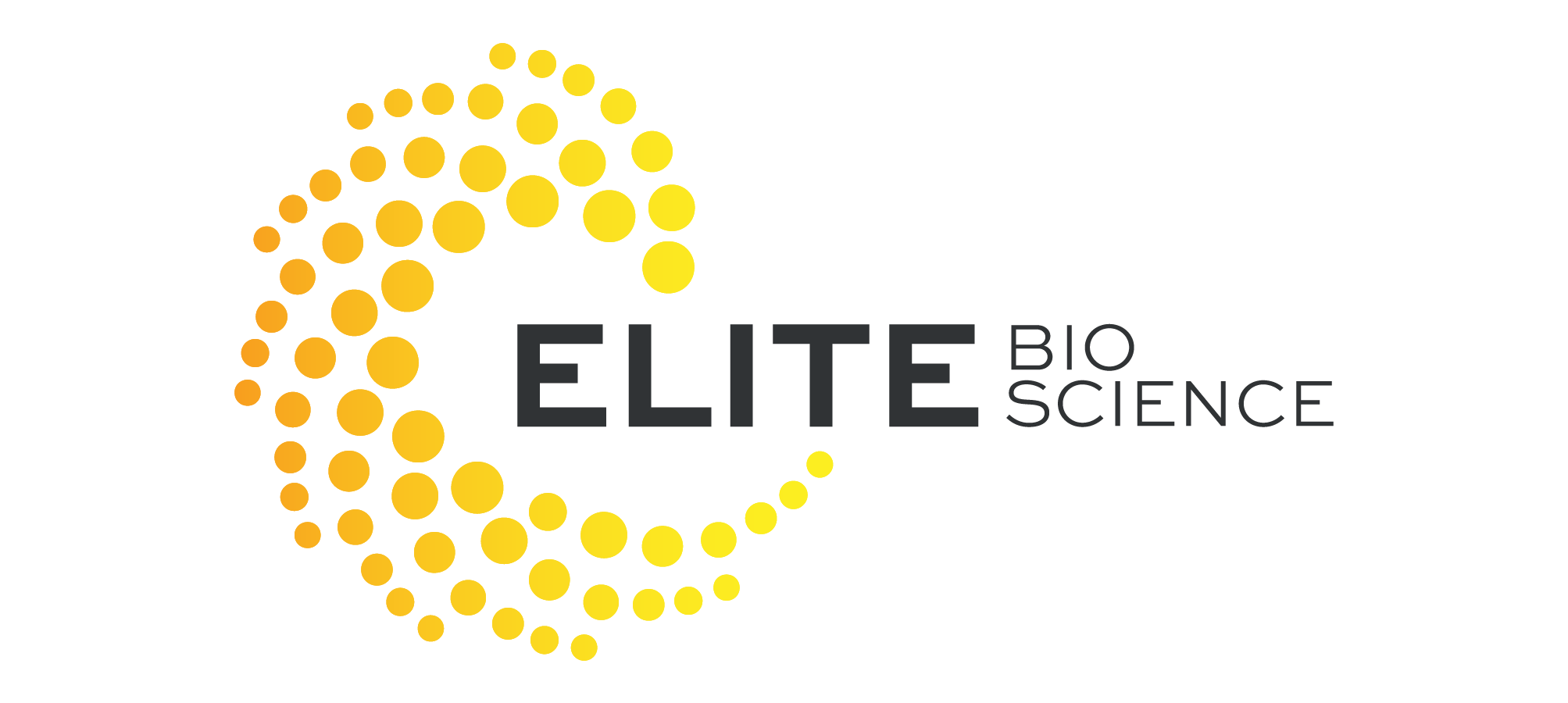8 Best Vitamins for Athletes to Boost Performance [2025]

Peak athletic performance isn't just built in the gym or on the field; it's forged at a cellular level. While macronutrients like protein, carbs, and fats get most of the attention, a hidden world of micronutrients dictates everything from energy production to muscle repair and immune resilience. For any serious athlete, the demands of intense training amplify the need for these essential compounds far beyond that of the average person. Increased metabolic stress, sweat loss, and the constant need for tissue repair create a unique nutritional environment where deficiencies can silently sabotage progress.
This guide moves beyond generic advice to provide a detailed roadmap of the best vitamins for athletes. We'll explore why specific micronutrients are indispensable, analyzing their roles in performance, endurance, and recovery. You will learn about optimal intake through both natural food sources and advanced supplementation strategies, including targeted injectable therapies designed for maximum bioavailability. Consider this your definitive resource for refining your micronutrient strategy. We will cover key players like Vitamin D3, B-Complex, Vitamin C, and vital minerals such as magnesium and iron, helping you unlock your true athletic potential.
1. Vitamin D3: The Sunshine Vitamin for Bone and Muscle Integrity
Often called the "sunshine vitamin," Vitamin D3 (cholecalciferol) is a fat-soluble vitamin that functions more like a hormone in the body. It plays a pivotal role in athletic performance by regulating calcium and phosphate absorption, which is fundamental for maintaining strong, healthy bones. For athletes, this translates directly to a reduced risk of stress fractures and other bone-related injuries, a common concern in high-impact sports.
Beyond bone integrity, Vitamin D3 is critical for optimal muscle function and strength. It influences muscle contraction and protein synthesis, directly impacting an athlete's power output and recovery. Deficiencies are remarkably common, especially for athletes who train predominantly indoors, live in northern climates with limited sun exposure, or have darker skin tones. This is why many professional organizations, including NFL teams and Olympic squads, routinely monitor and supplement their athletes' levels to prevent performance decrements.
Key Benefits and Use Cases
- Injury Prevention: Adequate D3 levels are essential for preventing stress fractures. Many professional basketball players and endurance runners supplement to reinforce bone density against repetitive impact.
- Muscle Strength: Studies show a direct correlation between Vitamin D status and muscle power. Optimizing levels can lead to measurable gains in strength and athletic output.
- Immune Support: Intense training can temporarily suppress the immune system. Vitamin D helps modulate immune responses, keeping athletes healthier and more consistent in their training schedules.
The following infographic highlights the most critical data points for athletes considering Vitamin D3 supplementation.

These key takeaways underscore how Vitamin D3 is not just for bones; its role in reducing injury risk while supporting daily performance makes it one of the best vitamins for athletes. To maximize absorption, it is best taken with a meal containing healthy fats. For more insights on supplement timing, you can learn about the best time to take vitamins. Always consult a healthcare professional to get your blood levels tested before starting a new supplementation regimen.
2. B-Complex Vitamins: The Engine for Energy Metabolism
B-Complex is a group of eight essential water-soluble vitamins that act as the metabolic engine for the body. For athletes, these vitamins are non-negotiable, playing a direct role in converting food into usable energy (ATP), supporting nervous system function, and aiding in the formation of red blood cells. Because they are critical for these high-demand processes, athletes often require higher intakes to fuel their performance and recovery.

Unlike fat-soluble vitamins, the body does not store B vitamins, and they can be depleted through sweat and increased metabolic turnover during intense exercise. This makes consistent intake crucial. A deficiency in even one B vitamin, such as B12 or B6, can bottleneck energy production, leading to premature fatigue, reduced endurance, and impaired muscle repair. This is why B-complex is a cornerstone supplement for many elite athletes, from Tour de France cyclists to competitive CrossFitters.
Key Benefits and Use Cases
- Sustained Energy Production: B vitamins are coenzymes in the metabolic pathways that break down carbohydrates and fats for fuel. Marathon runners often supplement to prevent depletion and maintain energy levels over long distances.
- Nervous System Support: These vitamins are vital for nerve impulse transmission and cognitive function, helping maintain focus and coordination during competition. Team sport athletes rely on this for quick decision-making.
- Red Blood Cell Formation: Vitamins B12 and B9 (folate) are essential for producing healthy red blood cells, which transport oxygen to working muscles. This makes them one of the best vitamins for athletes focused on endurance.
When supplementing, it's often best to choose a comprehensive B-complex formula rather than individual B vitamins, as they work synergistically. Opting for methylated forms can enhance bioavailability, especially for individuals with certain genetic variations. As these vitamins are water-soluble, consider splitting doses throughout the day and always take them with a meal to minimize potential stomach upset. For targeted and efficient delivery, injectable B-complex is also an option that bypasses the digestive system entirely. You can explore a range of performance-enhancing options, including injectable therapies from Elite Bioscience.
3. Vitamin C: The Antioxidant Powerhouse for Repair and Immunity
Vitamin C, or ascorbic acid, is a water-soluble vitamin renowned for its potent antioxidant properties. It plays a critical role in protecting the body from exercise-induced oxidative stress, which is the cellular damage caused by free radicals generated during intense physical activity. By neutralizing these damaging molecules, Vitamin C helps mitigate inflammation and muscle soreness, allowing for faster and more efficient recovery between training sessions.
This vitamin is also indispensable for collagen synthesis, the process of building the primary protein that forms connective tissues like tendons, ligaments, and skin. For athletes, strong collagen is vital for joint health and tissue repair, helping to fortify the body against the strain of repetitive movements and high-impact forces. Furthermore, it enhances iron absorption, a mineral essential for oxygen transport and energy production, making it one of the best vitamins for athletes looking to maintain peak performance and resilience.
Key Benefits and Use Cases
- Accelerated Tissue Repair: Vitamin C is fundamental for producing collagen, making it crucial for healing minor sprains, strains, and general tissue wear-and-tear. Soccer players and basketball players often supplement to support joint integrity during demanding seasons.
- Immune System Defense: Intense training blocks can temporarily weaken the immune system. Ultra-marathoners and winter sport athletes frequently use Vitamin C to reduce the incidence and severity of upper respiratory tract infections.
- Combating Oxidative Stress: As a powerful antioxidant, it helps reduce the cellular damage that occurs during strenuous workouts. This can lead to less muscle soreness and improved recovery times for strength and endurance athletes alike.
Adequate Vitamin C levels are crucial for athletes to stay healthy and recover effectively from the demands of their sport. Because the body cannot store it, a consistent daily intake is necessary. For optimal antioxidant benefits, it can be beneficial to time a dose around your training window. To reduce potential stomach irritation from higher doses, consider buffered forms like calcium ascorbate.
4. Magnesium: The Unsung Hero of Muscle Recovery and Energy
Magnesium is a vital mineral that acts as a cofactor in over 300 enzymatic reactions, making it indispensable for athletes. Its roles are vast, governing everything from energy production (ATP metabolism) and muscle contraction to nerve function and protein synthesis. For athletes, maintaining adequate magnesium levels is a constant challenge, as intense exercise increases losses through sweat and urine while metabolic demands for the mineral soar. This frequent depletion can lead to fatigue, muscle cramps, and impaired recovery if not addressed.
Because of its direct involvement in muscle relaxation and the regulation of the nervous system, magnesium is a cornerstone of any serious recovery protocol. Suboptimal levels are common among hard-training individuals and can directly hinder performance by compromising both energy output and the ability to properly recover between sessions. Ensuring a sufficient intake is a simple yet powerful strategy for supporting consistent, high-level athletic function, positioning magnesium as one of the best vitamins and minerals for athletes.
Key Benefits and Use Cases
- Muscle Cramp Prevention: Magnesium helps regulate muscle contractions and electrolyte balance. Many tennis players and endurance athletes rely on it to prevent debilitating cramps during long events.
- Enhanced Recovery and Sleep: By calming the nervous system, magnesium can improve sleep quality, which is critical for muscle repair and hormone regulation. Bodybuilders often take it before bed to maximize overnight recovery.
- Energy Production: As a key player in the creation of ATP, the body's main energy currency, optimal magnesium levels are essential for sustaining performance during prolonged or high-intensity exercise.
These takeaways highlight magnesium's crucial, multifaceted role in athletic success. It is not just a reactive fix for cramps but a proactive tool for enhancing energy and accelerating recovery. To get the most out of your training, exploring advanced recovery strategies is key. You can learn about cutting-edge recovery methods for athletes to complement your nutritional plan. For best results, consider chelated forms like magnesium glycinate for superior absorption and take it in the evening to support restorative sleep.
5. Iron: The Oxygen Carrier for Peak Endurance and Energy
While technically a mineral, iron's role in energy metabolism is so crucial that it functions like one of the best vitamins for athletes. Iron is a core component of hemoglobin, the protein in red blood cells responsible for transporting oxygen from the lungs to working muscles. It is also vital for myoglobin, which transports and stores oxygen within muscle cells, ensuring they have the fuel needed for sustained aerobic activity and energy production.
Athletes, especially female and endurance athletes, face a higher risk of iron deficiency. This is due to increased demands from intense training, along with losses through sweat, gastrointestinal bleeding, and foot-strike hemolysis, a condition where red blood cells are damaged from repetitive impact. An iron deficiency can lead to fatigue, reduced work capacity, and impaired athletic performance, making it a critical nutrient to monitor and manage for anyone serious about their training.
Key Benefits and Use Cases
- Enhanced Endurance: Adequate iron levels ensure optimal oxygen delivery to muscles, directly boosting aerobic capacity and stamina. Female distance runners and endurance cyclists often supplement to counteract losses and maintain peak performance.
- Altitude Adaptation: Athletes training at high altitudes require more red blood cells to compensate for lower oxygen levels. Iron supplementation is frequently used to support this physiological adaptation, enabling better performance in oxygen-thin environments.
- Energy Production: Iron is essential for the electron transport chain, a key process in cellular energy (ATP) production. Correcting a deficiency can significantly reduce feelings of fatigue and improve overall energy levels.
Iron's direct impact on oxygen transport and energy makes it a non-negotiable component of an athlete’s nutritional strategy. However, because excess iron can be toxic, it is imperative to get your blood levels tested by a healthcare professional before beginning supplementation. To improve absorption, take iron supplements with a source of vitamin C, like orange juice, and avoid taking them with calcium, coffee, or tea, which can inhibit uptake.
6. Omega-3 Fatty Acids (EPA/DHA): The Anti-Inflammatory Powerhouse
While not technically a vitamin, Omega-3 fatty acids are essential polyunsaturated fats that are indispensable for elite athletic function. The two most crucial forms for athletes are eicosapentaenoic acid (EPA) and docosahexaenoic acid (DHA), typically found in fish oil. These compounds are renowned for their potent anti-inflammatory properties, which directly combat the exercise-induced inflammation that causes muscle soreness and delays recovery. By helping to resolve inflammation, Omega-3s allow athletes to train harder and more frequently.
Beyond just recovery, these fatty acids are integral to overall health, supporting cardiovascular function, joint integrity, and even brain health. The cell membranes of every cell in the body, including muscle and nerve cells, rely on these healthy fats to function correctly. This structural role is critical for everything from efficient nerve signaling for muscle contraction to maintaining flexible, healthy joints under heavy loads. Because the body cannot produce them efficiently, they must be obtained through diet or supplementation, making them one of the most important nutrients for athletes to monitor.
Key Benefits and Use Cases
- Reduced Muscle Soreness: Omega-3s help manage delayed onset muscle soreness (DOMS) by mitigating the inflammatory response to intense training. Combat sport athletes and bodybuilders often use high doses to accelerate recovery between sessions.
- Joint and Brain Health: Powerlifters and other strength athletes supplement with Omega-3s to support joint lubrication and reduce chronic aches. Similarly, many NFL players use them to support brain health and cognitive function.
- Cardiovascular Support: Endurance athletes like marathon runners and cyclists benefit from the cardiovascular advantages, including improved blood flow and heart health, which are crucial for sustained performance.
To get the most from these powerful fats, it's vital to choose a high-quality, third-party tested supplement to ensure purity and potency, aiming for a combined dose of 2-3 grams of EPA and DHA daily. Taking them with a meal can improve absorption and prevent any potential stomach upset. For more strategies on enhancing your physical output, you can find additional information on how to improve athletic performance. Always consult a healthcare professional to determine the right dosage for your specific training demands and health goals.
7. Zinc: The Essential Mineral for Immunity and Recovery
Zinc is a fundamental trace mineral that plays a surprisingly powerful role in hundreds of enzymatic reactions within the body. For athletes, its importance cannot be overstated, as it is integral to protein synthesis, wound healing, and cellular repair, processes that are constantly at work during intense training and recovery cycles. Furthermore, zinc is a cornerstone of a robust immune system and a key player in maintaining healthy testosterone levels, a hormone vital for muscle growth and strength.

Athletes often have higher zinc requirements and are at a greater risk for deficiency due to increased losses through sweat and urine, coupled with elevated metabolic demands. A slight deficiency can lead to a compromised immune response, impaired muscle repair, and a drop in performance, making zinc one of the best minerals for athletes to monitor. Its popularity, particularly in ZMA (Zinc, Magnesium, Vitamin B6) formulas, highlights its perceived value in the athletic community for enhancing recovery and sleep quality.
Key Benefits and Use Cases
- Immune System Resilience: Wrestlers and other athletes undergoing stressful weight cuts often supplement with zinc to bolster their immune defenses when they are most vulnerable. Endurance athletes also use it to stay healthy during demanding training blocks.
- Hormonal Support: Strength athletes, from powerlifters to bodybuilders, utilize zinc to support optimal testosterone production, which is crucial for building and maintaining muscle mass and strength.
- Tissue Repair and Healing: Zinc is critical for cell growth and protein synthesis. This makes it essential for repairing muscle micro-tears after a workout and healing any minor injuries sustained during training.
These applications demonstrate zinc's role as a non-negotiable component of an athlete’s nutritional strategy. To avoid stomach upset, it is best taken with food. For those with long-term supplementation plans, it’s wise to monitor copper levels, as high zinc intake can interfere with copper absorption. Always consult a healthcare professional to ensure your supplementation strategy aligns with your specific needs.
8. Vitamin E: The Cellular Protector Against Exercise-Induced Damage
Vitamin E is a powerful, fat-soluble antioxidant that stands as a primary defender of cell membranes. During intense physical activity, the body's oxygen consumption increases dramatically, leading to a surge in free radical production. These unstable molecules cause oxidative stress, damaging cells and contributing to muscle soreness and fatigue. Vitamin E neutralizes these free radicals, directly protecting muscle cells from this exercise-induced damage.
Its role is particularly crucial for endurance and high-intensity athletes whose training regimens create significant oxidative loads. By safeguarding the integrity of cell membranes, Vitamin E not only helps mitigate muscle damage but also supports a robust immune system, which can be temporarily weakened by strenuous exertion. This protective action is why it is considered one of the best vitamins for athletes focused on long-term performance and efficient recovery.
Key Benefits and Use Cases
- Reduces Muscle Damage: Vitamin E helps minimize the breakdown of muscle tissue during and after intense workouts. This makes it invaluable for ultra-endurance athletes and bodybuilders looking to speed up recovery between sessions.
- Antioxidant Defense: It protects the body from environmental stressors. Athletes training in polluted urban areas or at high altitudes, where oxidative stress is greater, often supplement to bolster their defenses.
- Supports Immune Function: By preventing free radical damage to immune cells, Vitamin E helps athletes stay healthy and avoid training interruptions, a concept popularized by research from pioneers like Dr. Priscilla Clarkson.
These key takeaways highlight Vitamin E’s critical function in protecting the body at a cellular level, allowing athletes to recover faster and train more consistently. For optimal absorption, it should be consumed with a meal containing healthy fats. Always consider choosing a natural form (d-alpha-tocopherol) and consult a healthcare professional to ensure your supplementation strategy aligns with your training goals and doesn't interfere with natural training adaptations.
Key Benefits Comparison of 8 Vital Vitamins for Athletes
| Supplement | Core Benefits | User Experience | Value Proposition | Target Audience | Unique Selling Points | Recommended Dosage |
|---|---|---|---|---|---|---|
| Vitamin D3 | Bone strength, muscle function, immune regulation | Improves strength, recovery | Reduces stress fracture risk, mood support | Athletes indoors/low sunlight | Influences testosterone, fat-soluble | 2000-4000 IU daily |
| B-Complex Vitamins | Energy metabolism, nervous system, red blood cells | Boosts energy, mental focus | Minimal toxicity, supports metabolism | High-intensity athletes | Contains all 8 B vitamins balanced | 50-100 mg daily |
| Vitamin C | Antioxidant, collagen synthesis, immune support | Reduces illness duration | Accelerates repair, reduces oxidative stress | Endurance athletes | Enhances iron absorption | 500-1000 mg daily |
| Magnesium | Muscle function, energy production, enzyme cofactor | Reduces cramps, improves sleep | Supports recovery, multiple absorption forms | All athletes needing recovery | Chelated forms for better absorption | 200-400 mg daily |
| Iron | Oxygen transport, energy, immune function | Prevents fatigue, anemia | Essential for endurance, prevents deficiency | Female/endurance athletes | Heme and non-heme forms | Based on blood tests |
| Omega-3 Fatty Acids (EPA/DHA) | Anti-inflammatory, cardiovascular, brain health | Speeds recovery, supports joints | Reduces inflammation, cognitive benefits | Athletes with inflammation | Multiple source forms, purity focus | 2-3 g combined EPA/DHA daily |
| Zinc | Immune function, protein synthesis, testosterone | Boosts immunity, aids repair | Supports testosterone, wound healing | Strength, endurance athletes | Important for hormone support | 15-30 mg daily |
| Vitamin E | Antioxidant, cell membrane protection | Reduces muscle damage | Supports immune health, cardiovascular | Endurance, older athletes | Natural d-alpha-tocopherol preferred | 400-800 IU daily (natural form) |
Integrating Your Vitamin Strategy for a Competitive Edge
Navigating the world of sports nutrition can feel complex, but understanding the roles of the best vitamins for athletes is the critical first step toward unlocking your full potential. This guide has detailed the specific functions of crucial micronutrients, from Vitamin D3's role in bone health and hormonal balance to the B-Complex vitamins' direct impact on energy metabolism. We have explored how Vitamin C and Zinc fortify your immune system against training-induced stress, while Magnesium and Iron are indispensable for muscle function and oxygen transport.
Ultimately, mastering your vitamin intake is about building a cohesive and personalized strategy that separates dedicated athletes from elite competitors. The non-negotiable foundation of this strategy must always be a nutrient-dense diet rich in whole foods. However, the extreme physiological demands of sport often create nutritional gaps that even the most pristine diet cannot fill. This is where targeted supplementation becomes a strategic tool, not a crutch.
From Guesswork to a Data-Driven Approach
The most significant takeaway is to move from guessing to a data-driven approach. Instead of randomly selecting supplements, your journey should begin with a comprehensive assessment.
- Step 1: Get Tested. Start by getting bloodwork done to identify any specific deficiencies or insufficiencies in key vitamins like D3, Iron, and B12. This provides an objective baseline.
- Step 2: Consult a Professional. Discuss your test results, training load, and performance goals with a sports-focused healthcare professional or registered dietitian. They can help you interpret your needs and build a tailored plan.
- Step 3: Prioritize Diet. Use your newfound knowledge to optimize your diet first. Focus on incorporating more natural sources of the vitamins you need, such as fatty fish for Omega-3s, leafy greens for Magnesium, and citrus fruits for Vitamin C.
- Step 4: Supplement Intelligently. Bridge the remaining gaps with high-quality supplements. This is where you apply the insights from this article, choosing the right forms and dosages to match your specific requirements.
Maximizing Bioavailability for Peak Performance
For athletes seeking maximum efficacy and bioavailability, innovative delivery systems offer a powerful advantage. When you are pushing your body to its limits, ensuring that every nutrient is fully utilized is paramount. Injectable vitamin therapies, for example, provide a direct path to cellular nutrition by bypassing the digestive system's potential absorption issues.
This method ensures 100% absorption, delivering potent, precisely dosed nutrients directly into your bloodstream for immediate use. It is an especially effective strategy for rapidly correcting deficiencies, supporting the body during intense training blocks, or ensuring peak nutrient status before a competition.
By combining a solid diet with intelligent, high-quality supplementation, you create a robust internal environment. This synergy fosters superior recovery, sustained energy, and the long-term athletic resilience needed to consistently perform at your best. This is not just about taking vitamins; it is about building a comprehensive system that supports every aspect of your athletic endeavors.
Ready to elevate your performance with a scientifically-backed approach to supplementation? Elite Bioscience offers third-party tested, high-purity injectable vitamins designed for maximum bioavailability and efficacy. Explore our solutions to see how you can give your body the direct, powerful nutritional support it needs to achieve a true competitive edge. Elite Bioscience
QUICK SEARCH
Make an account today to start your journey towards a better and healthier lifestyle.



